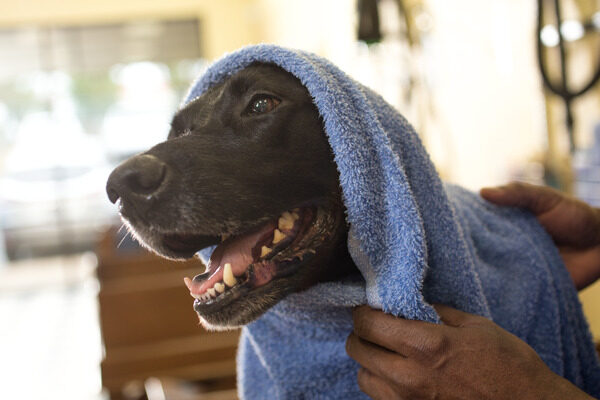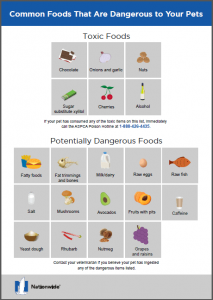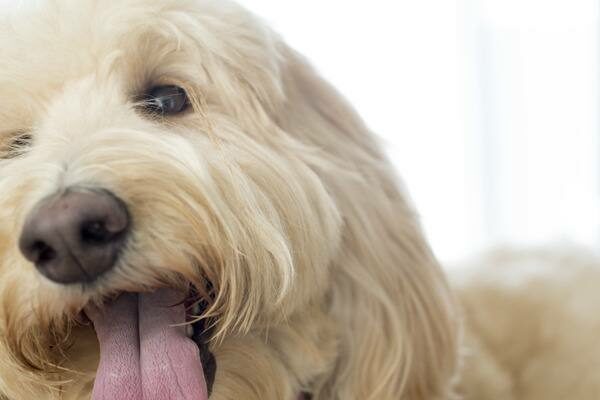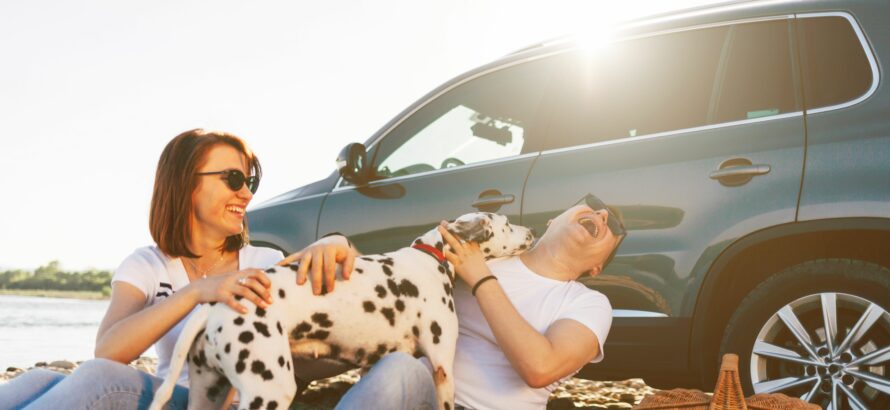
Certain foods that are good for humans can be dangerous and even toxic to pets – leading to a variety of health problems. Protect your dog or cat by not letting them get their paws on these dangerous foods.
Print out this handy PDF to hang on your fridge as a reminder of what foods are toxic to our beloved animals.
Chocolate
When you ask someone “What foods are toxic to dogs?” chocolate is often the first to come to mind. Chocolate toxicity can cause vomiting, diarrhea, heart arrhythmias and seizures, and can even be fatal. This is due to an ingredient in chocolate called theobromine, which can be poisonous to pets. The darker the chocolate and the smaller the dog, the greater the danger. Consult your veterinarian if your dog eats any.
Fatty foods
Tails wag at the scent of greasy and high-fat cheeseburgers, bacon and fried foods, but don’t give in to their begging. While these foods aren’t toxic, consumption can lead to vomiting, diarrhea and gas, and can result in pancreatitis and gastrointestinal issues.
Fat trimmings and bones
No more rewarding your pet with fat trimmed from your steak, chicken or pork. You run the risk of causing pancreas and liver problems. Be cautious of leftover bones, too; cooked bones are more likely to splinter, and the sharp pieces of bone can tear digestive organs and cause internal bleeding.
Onions and garlic
Onions and garlic can be lethal because of an ingredient called thiosulphate, which can damage your pet’s red blood cells and cause anemia. Thiosulphate is found in onions, shallots, chives and onion powder. It’s especially potent in garlic.
Nuts
If your dog is experiencing seizures, lethargy, vomiting or loss of muscle control, nut toxicity may be the cause. Macadamia nuts are a food especially toxic to dogs and cats. Many nuts are also high in fat and salt, which can cause a variety of health issues.
Raw eggs
Cooked eggs can make a healthy addition to your dog or cat’s diet, if eaten in moderation. Excessive consumption of raw eggs, however, can lead to a biotin deficiency that is bad for dogs’ skin and fur.
Raw fish
While not inherently a food poisonous to dogs and cats, raw fish may contain harmful bacteria that can lead to food poisoning in your pet. In addition, your pet may also be at risk of catching “fish disease” due to a parasite commonly found in salmon, trout, sturgeon and other upstream-swimming fish. Be sure to monitor your pet closely during fishing trips or at the beach.
Salt
A pretzel here or a potato chip there is mostly harmless. But large quantities of salt can lead to salt poisoning, which has severe neurological symptoms, including seizures and brain swelling. Be sure to monitor your pooch at the beach, since drinking salty ocean water is a common cause of salt poisoning.
Mushrooms
If your dog or cat can roam your yard, remove any wild mushrooms. The wild variety typically causes the most harm, as opposed to grocery store mushrooms. Even a few bites can cause seizures and vomiting.
Avocado
The large seeds found in avocados can become lodged in your pet’s stomach, esophagus or intestinal tract. If you live near avocado trees, be sure to monitor your pet to prevent choking.
Grapes and raisins
Grapes and raisins can cause kidney issues in dogs and cats. Even small amounts can result in lethargy, shivers and a decreased appetite. More extreme cases of grape poisoning can cause kidney failure and even death.
Cherries
These fruits are toxic to dogs and cats, causing dilated pupils, breathing problems and, in extreme cases, shock or even death. Beware of cherry trees and shrubs as well. With the exception of the ripe pulp around the seeds, these plants are poisonous to pets, as the non-pulp parts contain cyanide.
Fruit with pits
Beware of fruits with pits. They can cause your pet to choke or obstruct their intestines, particularly plum and peach pits, which also contain poisonous cyanide.
Beverages can be hazardous, too
- Alcohol, even in small amounts, can lead to poisoning. And it’s not just cocktails you should steer your pet clear of. Mouthwash and fermented foods can be poisonous to dogs and cats, as well. Symptoms range from loss of coordination, drowsiness and vomiting to seizures, respiratory failure and even death.
- Caffeine is a stimulant that can damage your pet’s nervous system, heart and other organs. In addition to coffee and tea, soda, ice cream and medications should be off-limits.
- Milk wouldn’t necessarily count as a food poisonous to cats, but it’s definitely not the prized treat most people think it is. In fact, most cats’ and dogs’ ability to digest milk decreases as they grow, making them lactose intolerant as adults. Consuming milk, cheese or yogurt can result in diarrhea and other issues for both cats and dogs.
Ingredients can also cause illnesses
- Yeast is a common ingredient in bread dough that is dangerous for dogs, as it can expand in their stomach and cause organs to tear or twist. Symptoms of yeast consumption include vomiting, diarrhea and stomach bloating. If you detect any of these symptoms, call your veterinarian. Some yeast dough also ferments, which can lead to alcohol toxicity.
- Rhubarb can be bad for pets’ kidneys and digestive organs, so be careful what jams and jellies your pet can get ahold of.
- Nutmeg, a spice often found in desserts, can cause tremors and seizures in your pet.
- The sugar substitute xylitol can cause your pet’s insulin to spike, so keep sugarless chewing gum, candy, medicines, vitamins, condiments, some peanut butters and even mouthwashes locked away.
Help avoid toxic mold by storing pet food in an airtight container in a cool, dry place.
If your dog or cat consumes any of these potentially dangerous foods, contact your veterinarian immediately. It’s also a good idea to stay on the safe side with pet insurance coverage, which can cover unexpected costs. In the event something does happen, you can take comfort in knowing your pet is protected.




